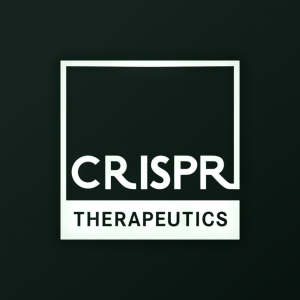CRISPR Therapeutics Reports Positive Additional Phase 1 Data for CTX310™ Targeting ANGPTL3 and Provides Update on In Vivo Cardiovascular Pipeline
Rhea-AI Summary
CRISPR Therapeutics (NASDAQ: CRSP) has reported positive additional Phase 1 data for its cardiovascular drug candidate CTX310, targeting ANGPTL3. The trial demonstrated impressive dose-dependent reductions of up to 82% in triglycerides and 86% in LDL, with a well-tolerated safety profile.
The company plans to present complete Phase 1 data for CTX310 in H2 2025. Additionally, CRISPR provided updates on two other cardiovascular programs: CTX320 targeting LPA gene, with data now expected in H1 2026, and CTX340 for refractory hypertension, which is advancing toward IND/CTA filings.
Positive
- Strong efficacy data with CTX310 showing up to 82% reduction in triglycerides and 86% in LDL
- Well-tolerated safety profile with no clinically significant changes in liver enzymes
- Large addressable market with over 40 million potential patients in the U.S. alone
- Multiple cardiovascular programs advancing in parallel showing pipeline progress
Negative
- Delay in CTX320 data release to first half of 2026
- Still in early clinical stages with Phase 1 trials
News Market Reaction
On the day this news was published, CRSP declined 2.01%, reflecting a moderate negative market reaction.
Data tracked by StockTitan Argus on the day of publication.
-New Phase 1 clinical data for CTX310™ continues to demonstrate dose-dependent reductions in triglycerides (TG) and low-density lipoprotein (LDL), with peak reduction of up to
-Complete Phase 1 data presentation for CTX310 anticipated at a medical meeting in the second half of 2025-
-Data update for CTX320™, targeting the LPA gene, now expected in the first half of 2026-
-Preclinical in vivo cardiovascular program CTX340™ advancing toward IND / CTA filings targeting refractory hypertension-
ZUG, Switzerland and BOSTON, June 26, 2025 (GLOBE NEWSWIRE) -- CRISPR Therapeutics (NASDAQ: CRSP), a biopharmaceutical company focused on creating transformative gene-based medicines for serious diseases today announced updates across its in vivo cardiovascular disease programs. These include new data for CTX310™, targeting ANGPTL3, as well as continued progress on CTX320™, targeting the LPA gene, and CTX340™, targeting the AGT gene.
“CRISPR Therapeutics remains focused on executing against our strategic priorities and advancing our portfolio of innovative therapies,” said Samarth Kulkarni, Ph.D., Chairman and Chief Executive Officer of CRISPR Therapeutics. “The additional data from our ongoing Phase 1 clinical trial for CTX310 reinforces the potential of our platform to transform the treatment of serious cardiovascular diseases. We are progressing with our dose-finding study and expect to share complete data at a medical meeting in the second half of this year. For CTX320, we are continuing our dose-finding study and anticipate sharing data in the first half of 2026, reflecting a strategic decision to incorporate emerging insights from the evolving Lp(a) treatment landscape.”
CTX310, targeting ANGPTL3
- CTX310 targets ANGPTL3, a gene that encodes for key protein involved in the regulation of low-density lipoprotein (LDL) and triglyceride (TG) levels – both of which are recognized risk factors for atherosclerotic heart disease (ASCVD). Loss-of-function mutations in ANGPTL3 are associated with significantly reduced levels of LDL and TGs, as well as reduced risk of ASCVD, without known adverse health effects. More than 40 million patients in the U.S. alone are affected by elevated LDL, severely elevated TG or both – representing a significant unmet need and a large addressable population. CTX310 is initially focused on high-risk patients with the greatest unmet medical need and limited effective treatment options.
- CTX310 is in an ongoing Phase 1 first-in-human clinical trial targeting ANGPTL3 in four patient groups: homozygous familial hypercholesterolemia (HoFH), severe hypertriglyceridemia (sHTG), heterozygous familial hypercholesterolemia (HeFH), or mixed dyslipidemias (MDL). Eligible participants have levels of TG >300 mg/dL and/or LDL-C >100 mg/dL (or >70 mg/dL for subjects with ASCVD). Both LDL and TG are validated surrogate endpoints accepted by regulatory agencies.
- These new results build upon previously disclosed results from the first 10 patients across the first four cohorts (lean body weight-based doses of DL1 [0.1 mg/kg], DL2 [0.3 mg/kg], DL3 [0.6 mg/kg] and DL4 [0.8 mg/kg]) with at least 30 days of follow-up for each participant. As dose-range finding continues, data to date demonstrate peak reductions of up to
82% in TG and LDL reductions of up to86% at DL4 without any clinically significant changes in liver enzymes and a safety and tolerability profile consistent with previous findings. - The Company anticipates presenting the complete Phase 1 data for CTX310 at a medical meeting in the second half of 2025.
CTX320™, targeting LPA
- CTX320 is in an ongoing Phase 1 clinical trial targeting the LPA gene in patients with elevated lipoprotein(a) [Lp(a)], a genetically determined risk factor associated with increased incidence of major adverse cardiovascular events (MACE). Elevated Lp(a) levels affect up to
20% of the global population and remains unaddressed by current therapies. - The Phase 1 trial is enrolling patients and dose-finding is ongoing. An update is now expected in the first half of 2026, reflecting a strategic decision to incorporate emerging insights from the evolving Lp(a) landscape.
CTX340, targeting angiotensinogen (AGT)
- CRISPR Therapeutics is also advancing its preclinical in vivo cardiovascular program CTX340, targeting angiotensinogen (AGT) for the treatment of refractory hypertension. CTX340 is currently progressing through IND/CTA-enabling studies.
About In Vivo Programs
CRISPR Therapeutics has established a proprietary lipid nanoparticle (LNP) platform for the delivery of CRISPR/Cas9 to the liver. The Company’s in vivo portfolio includes its lead investigational programs, CTX310 (directed towards angiopoietin-related protein 3 (ANGPTL3)) and CTX320 (directed towards LPA, the gene encoding apolipoprotein(a) (apo(a)), a major component of lipoprotein(a) [Lp(a)]). Both are validated therapeutic targets for cardiovascular disease. CTX310 and CTX320 are in ongoing clinical trials in patients with heterozygous familial hypercholesterolemia, homozygous familial hypercholesterolemia, mixed dyslipidemias, or severe hypertriglyceridemia, and in patients with elevated lipoprotein(a), respectively. In addition, the Company’s research and preclinical development candidates include CTX340 and CTX450™, targeting angiotensinogen (AGT) for refractory hypertension and 5’-aminolevulinate synthase 1 (ALAS1) for acute hepatic porphyria (AHP), respectively.
About CRISPR Therapeutics
Since its inception over a decade ago, CRISPR Therapeutics has evolved from a research-stage company advancing gene editing programs into a leader that celebrated the historic approval of the first-ever CRISPR-based therapy. The Company has a diverse portfolio of product candidates across a broad range of disease areas including hemoglobinopathies, oncology, regenerative medicine, cardiovascular, autoimmune, and rare diseases. In 2018, CRISPR Therapeutics advanced the first-ever CRISPR/Cas9 gene-edited therapy into the clinic to investigate the treatment of sickle cell disease and transfusion-dependent beta thalassemia. Beginning in late 2023, CASGEVY® (exagamglogene autotemcel [exa-cel]) was approved in several countries to treat eligible patients with either of these conditions. The Nobel Prize-winning CRISPR technology has revolutionized biomedical research and represents a powerful, clinically validated approach with the potential to create a new class of potentially transformative medicines. To accelerate and expand its efforts, CRISPR Therapeutics has formed strategic partnerships with leading companies including Vertex Pharmaceuticals. CRISPR Therapeutics AG is headquartered in Zug, Switzerland, with its wholly-owned U.S. subsidiary, CRISPR Therapeutics, Inc., and R&D operations based in Boston, Massachusetts and San Francisco, California. To learn more, visit www.crisprtx.com.
CRISPR THERAPEUTICS® standard character mark and design logo CTX310™, CTX320™, CTX340™ and CTX450™ are trademarks and registered trademarks of CRISPR Therapeutics AG. CASGEVY® and the CASGEVY logo are registered trademarks of Vertex Pharmaceuticals Incorporated. All other trademarks and registered trademarks are the property of their respective owners.
CRISPR Special Note Regarding Forward-Looking Statements
Statements contained in this press release regarding matters that are not historical facts are “forward-looking statements” within the meaning of the Private Securities Litigation Reform Act of 1995. Because such statements are subject to risks and uncertainties, actual results may differ materially from those expressed or implied by such forward-looking statements. Such statements include, but are not limited to, statements made by Dr. Kulkarni in this press release, as well as regarding any or all of the following: (i) CRISPR Therapeutics preclinical studies, clinical trials and pipeline products and programs, including, without limitation, status of such studies and trials (including guidance) and expectations regarding data, safety and efficacy generally; (ii) data included in this press release, as well as the ability to use data from ongoing and planned clinical trials for the design and initiation of further clinical trials; (iii) regulatory submissions and authorizations, including related timelines; and (iv) the therapeutic value, development, and commercial potential of gene editing and delivery technologies and therapies, including CRISPR/Cas9. Risks that contribute to the uncertain nature of the forward-looking statements include, without limitation, the risks and uncertainties discussed under the heading “Risk Factors” in its most recent annual report on Form 10-K and in any other subsequent filings made by CRISPR Therapeutics with the U.S. Securities and Exchange Commission. Existing and prospective investors are cautioned not to place undue reliance on these forward-looking statements, which speak only as of the date they are made. The Company disclaims any obligation or undertaking to update or revise any forward-looking statements contained in this press release, other than to the extent required by law.
This press release also contains information regarding our industry, our business and the markets for certain of our product candidates, including data regarding the estimated size of those markets, and the incidence and prevalence of certain medical conditions. Unless otherwise expressly stated, we obtained this industry, business, market and other data from market research firms and other third parties, including medical publications, government data and similar sources. Information that is based on estimates, forecasts, projections, market research or similar methodologies is inherently subject to uncertainties and actual events or circumstances may differ materially from events and circumstances reflected in this information.
This press release discusses CRISPR/Cas9 gene editing investigational therapies and is not intended to convey conclusions about efficacy or safety as to those investigational therapies or uses of such investigational therapies. There is no guarantee that any investigational therapy will successfully complete clinical development or gain approval from applicable regulatory authorities.
Investor Contact:
+1-617-307-7503
ir@crisprtx.com
Media Contact:
+1-617-315-4493
media@crisprtx.com








